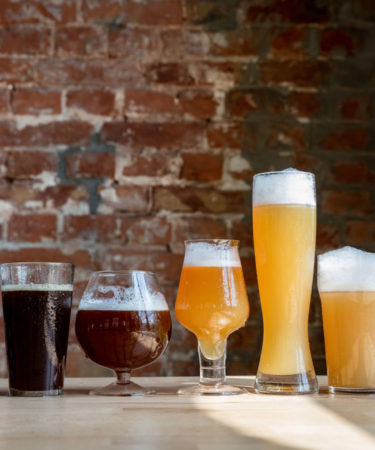Consumers are drinking less beer, but spending more on it and caring more about it, according to a recent Nielsen survey.
“Value is outpacing velocity and volume in all categories,” Matthew Drummond, of Nielsen’s beverage alcohol team, said. “It goes to show the premiumization in the whole alcohol segment.”
Nielsen’s top 10 growth brands by dollar sales include five hard seltzers — all from White Claw and Truly — along with three light beers, Michelob Ultra, Michelob Ultra Pure Gold, and Corona Premier. Session beers are going strong, too — the top five new products released in 2019 from BA-defined craft breweries include Dogfish Head Slightly Mighty IPA, and Boston Beer Co.’s Marathon Brewing 26.2 Brew.
Caitlyn Battaglia, another member of Nielsen’s beverage alcohol team, said consumers are willing to pay more for local brands — “almost a $5 premium when it comes to paying for local craft, compared to some of the more national or non-local varieties or offerings,” she said.
Don’t worry, hop heads: We still love our IPAs. IPA reigns supreme as the top-selling craft beer style, accounting for 30 percent of all craft dollar sales, and growing 10 percent in the survey period ending Sept. 7, 2019, according to Nielsen. And following IPA is… more IPA, with imperial, double, and triple IPAs comprising an additional 6 percent of craft dollar sales and 9 percent growth in the survey period.
Premiumization has evolved beyond choosing Stella Artois over Bud Light. By purchasing beer we perceive as better for us, we’re supporting more sustainable drinking habits and helping support brands that align with our lifestyles and values. Ideally, this will not only improve how we feel, it will improve the products that we buy.
Ninkasi Parent Acquires More Breweries
Last Thursday, Ninkasi Brewing parent company Legacy Breweries Inc. announced the acquisition of two more breweries, Aspen Brewing of Aspen, Colo., and Laurelwood Brewing of Portland, Ore. The breweries will retain their existing names, with Legacy acquiring all of Aspen Brewing’s assets and all of Laurelwood’s, with the exception of Laurelwood’s brewpub in Portland. Legacy plans to acquire a total of 15 breweries by the end of 2020, Brewbound reports.
“When we saw Aspen’s unique position in the Colorado market, we instantly knew we wanted to be involved with their future,” Don Bryant, Legacy CEO, said in a press release. “They have a long tradition of local support and great beers. The brewery has a strong history of philanthropy in the Colorado Rockies region, which aligns with Legacy’s values.”
Ninkasi will also begin distributing products by Alesong Brewing and Blending of Eugene, Ore., beginning November 2019.
If this sounds familiar, that’s because earlier this month, three Colorado breweries (Renegade Brewing, Good River Beer, and Rocky Mountain Sector) merged to create the Brewer’s Co-Hop. The three brands will share a production facility and offices in Denver.
On a much larger scale are brewing groups like the CANarchy Craft Brewery Collective, along with Boston Beer, which recently added Dogfish Head Craft Brewery to its roster of beer, cider, and hard seltzer/flavored malt beverage brands.
One could argue these “independent” craft brewing groups keep breweries “small,” or keep our beer money circulating in local economies. But this isn’t always true. Take Firestone Walker, Boulevard Brewing, and Brewery Ommegang as examples — all are owned by Duvel Moortgat, a Belgian brewing company that I can anecdotally say some Belgian brewers consider “Big.” Call them cooperative or co-hop-erative, these are still corporate buyouts. But rather than bemoan every merger or acquisition, consider the alternative: breweries like Ninkasi, Firestone Walker, or Oskar Blues disappearing. In the end, we all want to drink the beer we love.
Truly Is Changing Its Recipes and Branding (Again)
Boston Beer’s Truly Hard Seltzer announced plans to reformulate its recipes, launch an alcoholic lemonade seltzer, and change its packaging.
The brand will reformulate all 13 of its flavors to taste “crisper and more refreshing,” Brewbound reports, by Nov. 1, 2019. Additionally, the forthcoming Truly Lemonade Seltzer (an obvious attempt to compete with White Claw sibling Mike’s Hard Lemonade) will debut in black cans, contrasting Truly’s (and almost every other hard seltzer’s) original white packaging.
What should we make of Truly’s repeated rebrandings? (It also changed its recipes in 2016, and rebranded from Truly Spiked and Sparkling to Truly Hard Seltzer in February 2019.) Between this, the slew of spiked seltzer brands flooding the marketplace, and the aforementioned growth of the hard seltzer category, I’d say brewers are clamoring to figure out how to make the most of this trend (and make as much seltzer money as possible) while the market is still thirsty.
